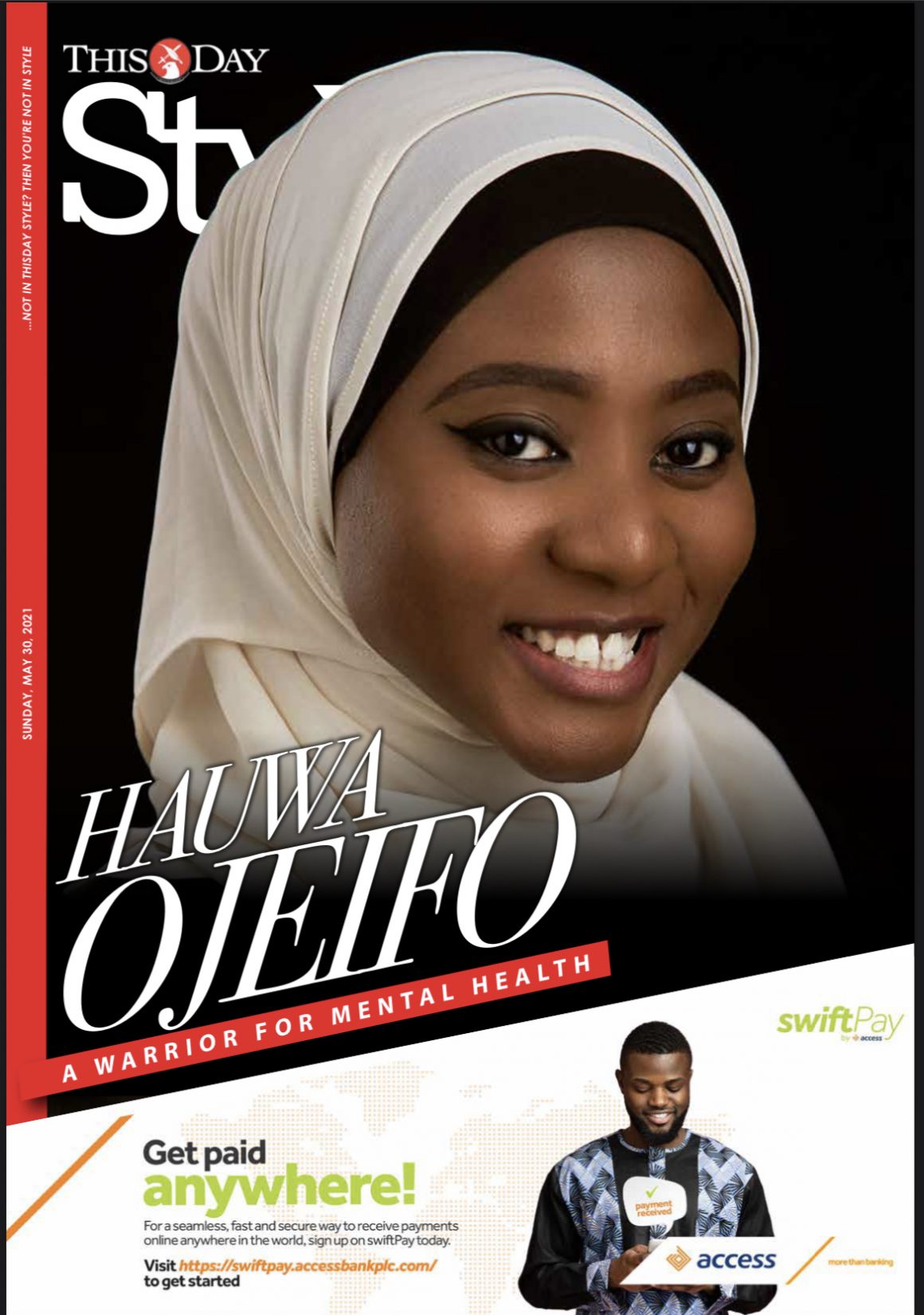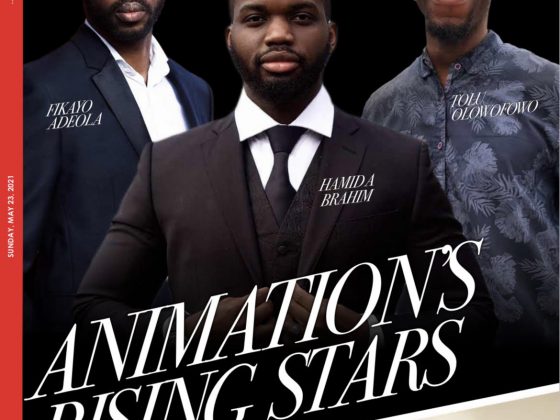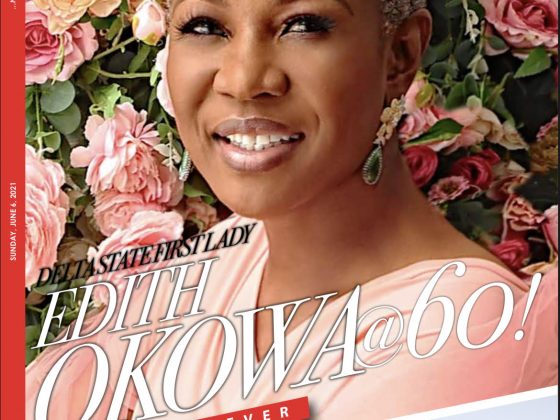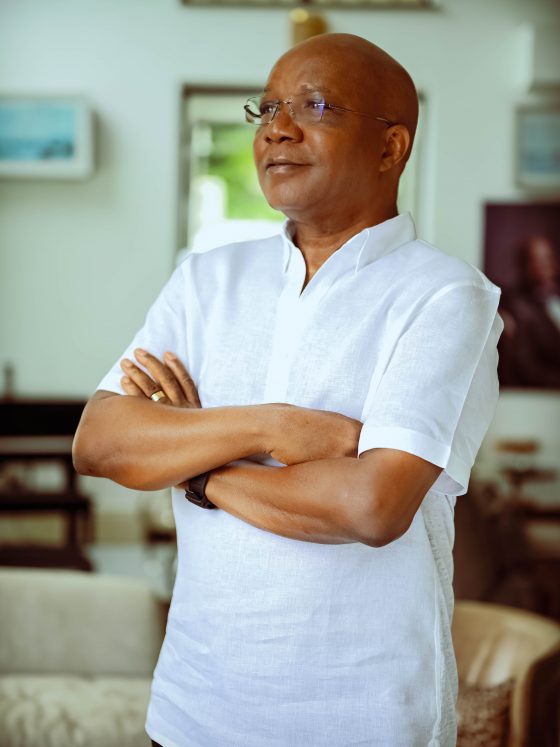A Warrior for Mental Health
Once Hauwa Ojeifo decided to share her personal journey with mental health issues and sexual violence, there was no going back regardless of the stigma society associated with the topic . The response she received was overwhelmingly supportive and empathetic a sign that this conversation needed to be had. She realised she wasn’t alone in the emotional turmoil she had experienced for so long, and decided to create a safe space where others could receive the same support she did from sharing her story. This is how She Writes Woman was born.
Five years on and Hauwa’s efforts is slowly but surely paying off . She has become known for her struggles to give a voice to those suffering from mental health issues and ending the stigma surrounding it . A fight which has earned her several awards and recognitions including the prestigious Queen’s Young Leaders award 2018 by the Royal Commonwealth Society, Cambridge University and the Queen Elizabeth Diamond Jubilee Trust. She was selected as a One Young World Ambassador and AstraZeneca Young Health Programme scholar amongst others .
In February of 2020, she became the first person with a mental health condition to testify in that capacity before the Nigerian National Assembly on the rights of persons with mental health conditions and psychosocial disabilities under the tenets of the United Nations Convention on the Rights of Persons with Disabilities. Her testimony ensured that the bill affecting about 40 to 60 million Nigerians was stepped down for reconsideration.
While there’s still a great deal of misunderstanding and confusion about mental health , people are finally beginning to accept that it exists and should be taken seriously.
In this interview with Konye Chelsea Nwabogor, she speaks on why she’s dedicated her life to helping others, what she wants women to know about mental health, and how you can help fight the stigma around mental health issues.
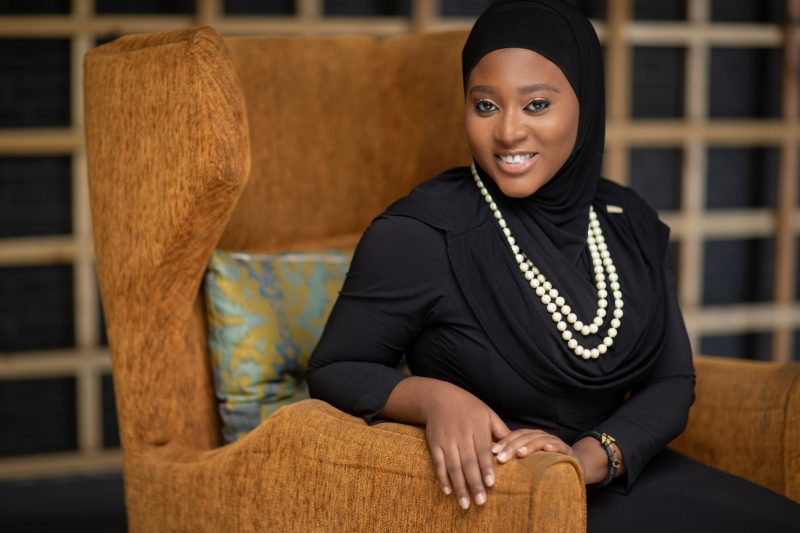
Here in Nigeria, there’s a lot of stigma surrounding mental health and sexual violence and so one would imagine it wasn’t easy coming out to use your personal experience to support others. Is this act therapeutic for you?
It was more out of being tired of living my life chocked in silence and wanting to be free of it and for me, talking publicly about my mental health and sexual violence experience was indeed some sort of coping mechanism. It was initially very therapeutic because it felt like the more, I talked about it the lighter I felFunny enough when I first started my crusade on mental health and sexual abuse, I did not own my story and instead told it in a third person narrative. But over time, I became more comfortable and put my name to it. I began to live my own truth and stopped being everything I was expected to be. I started to become what I truly wanted to be.
So what’s your story? And what has the journey to healing been like?
From a very early age, I was a different type of child but I think in my adolescent and teenage years, there was a shift in my behavior. I used to be this child that had a very loud laughter and I was very expressive, outgoing and playful but then something happened and all of a sudden I became this child that was very different. I barely talked, my laughter became low and I wasn’t social. It continued that way and progressed into what people call mood swings. My family and friends will say ‘she has terrible mood swings’.
I started having multiple gender-based violence experiences and multiple sexual-violence experiences and then perhaps, the biggest trigger was when I was raped in my adulthood. That just crystallized everything which triggered all the trauma as my body and mind couldn’t hold it anymore.
For everything I had gone through and kept in silence, I felt shame, guilt and blame. That was when my mental health journey began. That was the first time I ever had to deal with what was going on in my mind, how I was feeling and how it was affecting my behavior.
At some point it got worse, so I started speaking out, looking out on social media, doing a lot of googling and reading because I knew there was something wrong.
I managed to get in contact with a psychiatrist at Yaba and I recall having private sessions with a psychologist and it was interesting. I was doing all of this in secret. I didn’t tell any of my family or friends because this was a journey that I needed at that point in time to think on my own. I needed to understand everything. It was a condition where people ask you what is wrong, and you don’t know how to explain it.
I spent a couple of sessions with the psychologist, and I paid myself. Uber wasn’t a thing then so I had to use regular taxi. It was really tough and then I became broke doing it because of course, we all know how health care is expensive particularly in Nigeria. I felt I had gotten enough to at least give me a perfect tail so I could stand on my heels, but I remember my psychologist telling me that at some point, I really have to bring my parents because he could see that there was a lot of trigger within my family and also understanding that family is part of healing as well. It just wasn’t something I was ready for because I knew the kind of family I came from and I knew this wasn’t going to be easy for me, so I just stopped the sessions.
After that, I had a breakdown in February 2016, my diagnosis with my psychologist told me it was bipolar disorder and post traumatic disorder, so it was a closure finally that I could put a finger on what I was going through.
Two months down the line after seeing him, I had a breakdown again where I had my first suicidal attempt and that was the point where I knew there was no way I could go on this journey alone. My sister witnessed it as she was at the place where it happened and that’s when I had to bring my parents and family into it to know what I was going through and where I was at the moment. I told them about my sexual violence story and they were very instrumental in giving me that bit of support with regards to my sexual violence and making my family understand it wasn’t my fault and I didn’t bring it on myself. At this point in time, I had to bring in a psychiatrist to get the support I needed, I started taking medication and I am still on antidepressant medication at the moment.
It’s been quite a journey to healing but I think what is most important about my healing for me, is more than anything, the awareness. Awareness of what you have, what goes on inside of you, your thoughts, your feelings, your emotions, your behavior and how it is affecting other people.
That has really influenced how I have gone through my healing because healing isn’t just about seeing a professional or taking my medication, it is about understanding my entire life, experiences no matter how little, what choices, what was done to me at different points in my life knowingly and unknowingly that set me up in this path and having to undo some of these things, interrogate and address and perhaps come to terms with some of these experiences.
At a time when mental illness is still somewhat a taboo topic, was there anyone trying to silence you when you decided to speak out ?
Yes, they are people who didn’t want me to tell my story. I wanted to tell my story for me and the way I wanted to; zero edits, and that had consequences on people like my family.
Sometimes, not that people mean it the wrong way when they insist you be private about your mental health conditions, but they know the kind of society we live in and their intention is to protect you. I heard a lot of things like ‘you are erring your dirty laundry in public’ to ‘no man would want to marry somebody like you’ to ‘ you have to understand that you are a Muslim woman’. But I was very committed to the fact that I wanted to live life on my terms. That for me was my biggest healing, and so I continued to speak out.
What prompted the decision to help others?
I started She Writes Woman on April 17, 2016, my birthday. I realized that actually dropping those hints in third person encouraged people to reach out and talk. I would get dms from people who wouldn’t want to like the posts because they wouldn’t want other people to know they engaged in such contexts. People would also send me emails telling me that what I posted is literally their story, and that made me realize that it seemed like though everybody was waiting for one person to be the one to talk. That was the spark for me. It was really about the fact that I had a story and quite frankly it wasn’t that unique. They are a lot of people who are living in shame, fear and doubt and who have been silenced from telling their story. I also realized that people wanted to talk and that’s when we started the help line in July 2016. It was free and it operated 24/7. It still does.
At the time, I handled it myself. I would get calls at night and spend hours on the phone talking to people. They just wanted to be listened to and they wanted to know their stories were valid and their opinions mattered and that gave me purpose. From there I realized that people just wanted to connect to people like them .
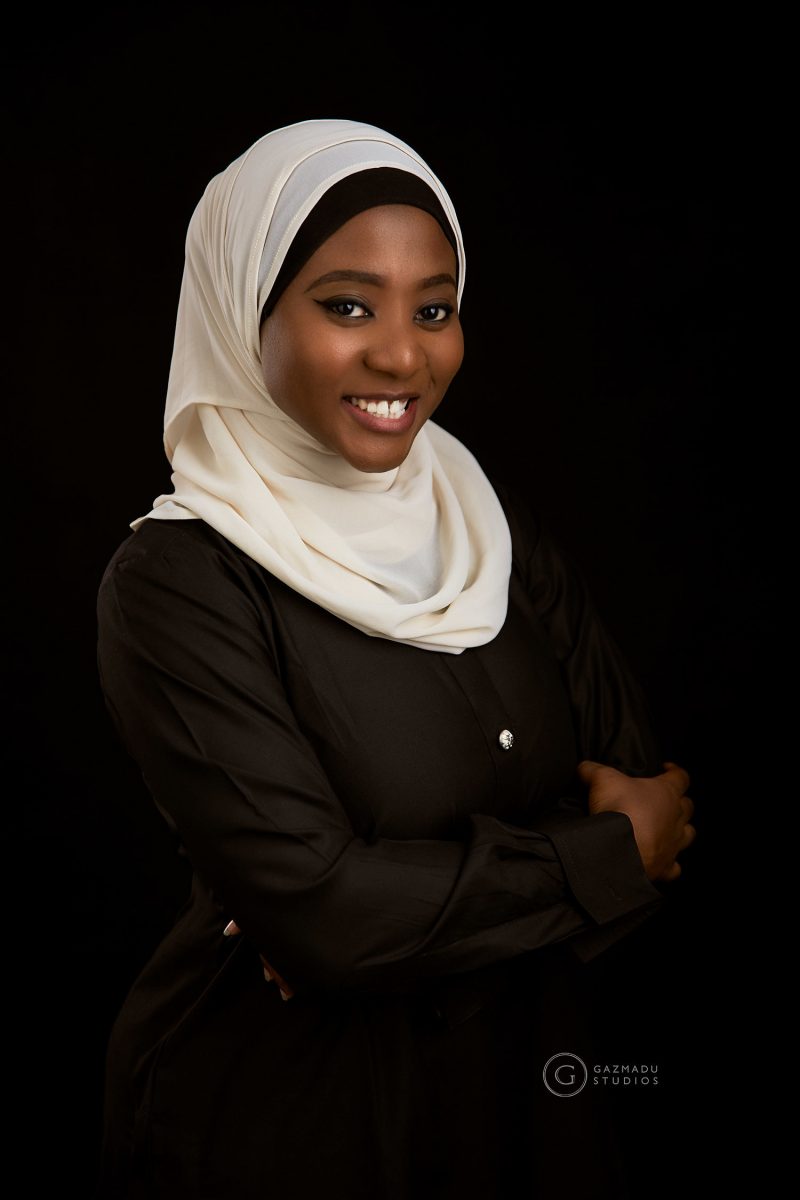
As a mental health advocate, what is the most common thing you hear most from people living with mental health conditions?
What I hear the most is that people need understanding. It is not like people call to say I need to be understood but from talking to people for the past five years, I can see that people want their stories heard. They want to know that their stories matter, and they also want to know it is not their fault that they are living with mental health conditions. Those are the things that I hear.
Why do you think there is a stigma associated with these conditions?
For me, it is a lack of understanding. I usually say it in two ways; unawareness and under awareness. Unawareness in the fact that a vast majority of Nigerians do not understand mental health, because of our culture, religion and societal norms that have been passed on from generation to generation. Then the other group of people who think they know about mental health are the ones under under-awareness. There is so much bias around mental health; how we talk about it, the language we use, the context we think about it and subconscious reactions. These actions tell us that even when we think we know; we really don’t know as much as we do. Those are the bottom lines of stigmas. Unawareness is ignorance driven while under-awareness is an incomplete story, the story that takes individual truth and turns it into something that is not true and leads to misinformation and undue fear.
What role can culture play in this stigma?
The thing about culture is, a lot of times when we talk about culture, we make it seem like it is static. It is a sum total of our way of life, what we consider to be normal, how we address things, eat, dress etc. What we see as culture today in 2021 wasn’t necessarily culture in 1981 so it has changed and adjusted. What I think is happening with the role that culture plays is that we are holding on to elements of culture that no longer work with the new information that we have received today. Taking information that you have received in the last 5/10 years but holding on to culture of 50/30 years is a total mismatch. If the way of life does not actually fit the people that it is made for, then it has to change.
The culture has to change, and the change starts from when we are presented with new information.
Tell me about She Writes Woman. Whay impact have you had with this platform?
She Writes Woman is a non-profit movement that gives mental health a voice in Nigeria by empowering people who actually live with mental health conditions to tell their own stories and advocate for their rights. We have done this over the last five years across three core areas; first is how we plug in systemic gaps for people to receive mental health care and support. We have a 24/7 talk free mental help line(0800800200), we have free and unlimited tele-therapy that people can access(tellng.com/therapySWW) and we also have a virtual community called Safe Place Nigeria as well. There is so much that needs to be done really. From the Federal Ministry of Health to World Health Organization, the estimate shows that about 40% of Nigerians putting the numbers to between 40million to 50million Nigerians, live with one form of mental health condition or the other. I am not talking about the mad people on the streets, rather, the everyday people like you and I that live with mental health conditions.
The secondary thing we do is legislative and policy advocacy which is really about ensuring that Nigerians international commitment are realized locally. By doing so, that we are holding the Nigeria government accountable to ensuring that the right respect, dignity and liberty of persons like me with mental health conditions and psychosocial disabilities are upheld at every single level of government. So whether it is in the new mental health legislation of existing laws or more importantly, in our practices, traditional and state law activities, we are advocating accountability under the tenet of the United Nations convention on the rights of persons with disabilities which is ‘nothing about us without us’.
The third aspect of our work is what we call intersection solutions. This is where we try to make sure that mental health conversations or care are not limited to the health care places. It permits work places, schools, creative industries, etc all addressing mental health issues.
Our impact as an organization has been felt by about 60million Nigerians. Just last year I made a landmark appearance at the National Assembly at the public hearing of the mental health bill, as the first person with a mental health condition to testify in that capacity before them. That testimony was so strong and powerful and had never before been done in Nigeria’s history but still, that bill was stopped from passing. A bill that would have caused over 60million Nigerians their right to freedom, right to choose and consent regarding their mental health.
Qualitatively, we are changing how mental health is looked at in Nigeria from top to bottom, from policy to practice to procedures within families and broadly speaking as a nation. And of course for all of this work, we have received local and international recognition from being awarded by Her Majesty the Queen of England, to being a part of Obama foundation Africa, to being recognized by the Goal Keeper Global Gold Stone Miller and also the Innogra Microbeits Fellow by Human Rights. I have also had the opportunity to speak at the World Health Organization and United Nations united nation twice. These are just a few of the many milestone recognitions and honors that all our impacts have brought for us.
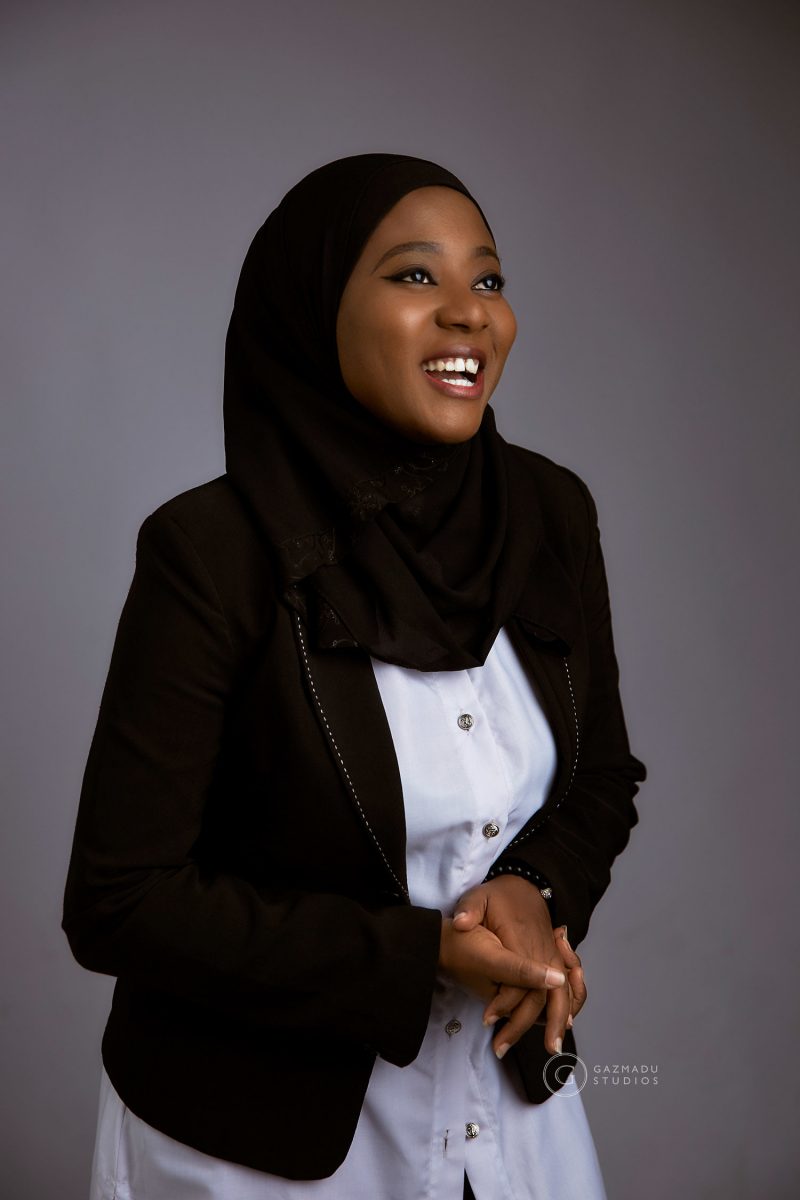
Are mental health issues avoidable? What do you believe is the best way to protect your mental space?
It is a yes and a no. Yes, in the sense that there are certain mental health issues that are avoidable because they are linked to adverse childhood experiences. There are also certain mental health issues that are a result of the way we have lived over a period of time and changing the way we live could reverse certain kinds of issues.
The best way for us to protect our mental health is to understand it, and know that mental health is not abstract. The thoughts and feelings you have affect your behavior, and how you show up to yourself and other people in different settings is your mental health. So, in understanding how to protect and preserve your mental health and your mental space, you have to understand how it works. You have to understand that when things are going on around you, within you, there are thoughts that fly through your mind and those thoughts trigger certain kind of emotions. When you sustain those thoughts or emotions over a long period of time, it begins to affect your mental health. So, in order to protect our mental space, we must start by nuturing our thoughts. That is you protecting your mental space. There is no glory in being sleep deprived, no glory in over working, the world is shifting, people are more productive when they are mentally healthy. These are the things to look out for.
What’s next for you and She Writes Woman ?
For us its really about shifting the system, we are focusing a lot on systemic change and one of the ways we are doing it is by building, training and empowering people who have mental health conditions. We are training people just like ourselves. We are calling out to as many that can come forward, we want to train them on what their rights are, to advocate their rights and to open the doors. For people to be able to walk into rooms within their states or community and have these conversations on what their rights are. To teach people how to hold their government accountable for fulfilling this rights. For us, that is a huge part for She Writes Woman and we will continue to scale up Safe Place Nigeria in order to see significant changes within mental health in Nigeria. We must address legislation and that for us is a core focus area.
What do you want women with mental health conditions to know?
Just like any other group of people, I want you to know that I hear you, I see you, your feelings are valid, your story matters, your experience matters. There are thousands of women just like you in your area who are calling on to each other. It is okay to reach out to receive the support you know you need.

